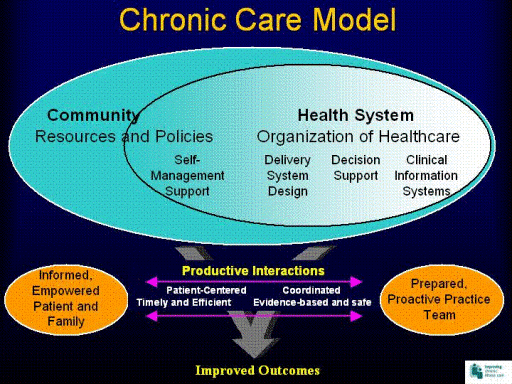The model we chose to implement was the Chronic Care
Model the purpose of creating
a more informed activated patient and a prepared proactive practice
team working together in a partnership to improve functions and
clinical outcomes. This model
incorporates the paradigm shift from our current model of heath care
delivery that is problem-based designed to handle acute patient
problems to a system that is prevention based to avoid long-term
problems such as diabetes complications.
This however, is not done in isolation, it takes community
resources, self-management support (diabetes education classes),
decision support (clinical guidelines), Delivery system support
which means designing the medical care environment to support
preventive care to accommodate the patients physical,
psychological/psychosocial and educational needs (in our project we
designed diabetes “mini-clinics” or diabetes days and Clinical
information systems, which in our study included chart audits to
provide doctors with information as to what their diabetes care was
like and also counseling them to use their own data to make changes.
So as you can see, this is a multifaceted approach to
behavior change involving many.
Using a multifaceted approach like this in a research study
brings about many complexities in study design and interpretation,
however testing just one component of the model would not provide an
accurate examination of its true effectiveness so…..
